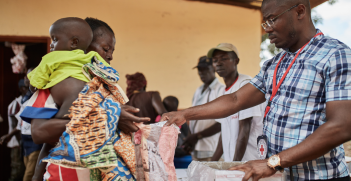Is South Sudan’s Peace Deal Falling Apart Again?

South Sudan’s fragile peace deal is unravelling as political tensions flare and violence resurfaces. More than a broken trust is the cause, and the nation’s leaders will need to be pressured into peace.
South Sudan is once again on the edge of a civil war. In March 2025, Vice President Riek Machar was placed under house arrest by President Salva Kiir’s government. His party, the SPLM-IO, quickly declared that the 2018 peace deal, the agreement that ended five years of brutal conflict, had effectively collapsed.
The United Nations has warned that the situation looks dangerously similar to the lead-up to South Sudan’s past civil wars. Armed clashes between rival groups have already broken out. Kenya sent former Prime Minister Raila Odinga to mediate the crisis, but so far, tensions remain high.
South Sudan has been here before. After gaining independence from Sudan in 2011, it quickly plunged into civil war just two years later. What began as a power struggle between Kiir and Machar turned into a deadly ethnic conflict. By the time a peace deal was signed in 2018, more than 400,000 people were dead, and millions had been forced to flee their homes.
The 2018 peace agreement, formally known as the Revitalized Agreement on the Resolution of the Conflict in South Sudan (R-ARCSS), was meant to end that war for good. It brought Machar back as vice president and called for national elections, the integration of armed forces, and the formation of a permanent constitution. It looked promising at first. But six years later, many of its key promises remain unfulfilled, and the country is once again on the brink.
What went wrong with the 2018 deal?
The biggest problem with the 2018 deal is that it focused too much on power-sharing between Kiir and Machar, and not enough on the root causes of the conflict. It brought the two rivals back into government but did little to heal the ethnic divisions or build trust between their followers. Most importantly, it failed to fully integrate their armed forces. Instead of one national army, South Sudan still has multiple rival groups loyal to different leaders.
This failure made the peace fragile from the start. Without a unified army or a functioning justice system, violence could return at any moment, and now it has.
The deal also suffered from constant delays. Elections that were supposed to happen in 2022 were pushed to 2024 and have now been delayed again to 2026. The transitional government has been slow to draft a new constitution or set up key institutions. Critics say Kiir’s government has little interest in real democratic reform.
Why is the crisis escalating now?
Machar’s house arrest was the breaking point. His party accuses the government of undermining the agreement, and reports suggest that fighting has already started in some areas, including Unity State and Jonglei. The UN has expressed alarm, and several foreign governments have urged South Sudan to de-escalate before the violence spreads further.
The government, meanwhile, claims Machar is supporting local militias, a charge he denies. This growing distrust is making it harder to bring both sides back to the negotiating table. Kenya has stepped in to help mediate, but with little progress so far. Odinga’s visit is a positive step, but the situation on the ground remains volatile.
Could this lead to another civil war?
Unfortunately, yes. All the warning signs are there. Armed groups are mobilising. The central government is cracking down on political opposition. And most of the peace deal’s reforms have stalled.
If full-blown war breaks out, the humanitarian consequences will be devastating. South Sudan is already struggling with hunger, flooding, and mass displacement. Millions rely on humanitarian aid, and new fighting would make it even harder for that aid to reach those in need. South Sudan’s youth, who have grown up knowing little but war, risk losing any hope for a peaceful future. Many feel abandoned by leaders who promised peace and delivered more political games.
The international community played a big role in securing the 2018 peace deal. But since then, global attention has faded. While donors continue to fund humanitarian work, they’ve largely backed away from holding South Sudan’s leaders accountable for delays and violations.
That needs to change. The African Union, IGAD, the UN, and Western governments still have influence, if they choose to use it. They can apply diplomatic pressure, impose sanctions, and demand real reforms. More importantly, any future deal must include voices beyond Kiir and Machar: civil society leaders, women, youth, and religious figures who understand what peace means at the community level.
What does South Sudan need now?
South Sudan doesn’t need another temporary fix between two politicians. It needs deep, long-term change. That means building a functioning government, creating a unified army, and setting up systems that can hold leaders accountable.
The country also needs truth and reconciliation. Thousands of families are still waiting for justice, and no peace deal will hold unless those wounds are addressed. Ordinary South Sudanese citizens must be part of this process, not just political elites.
At its heart, this is a story of broken trust. South Sudan’s leaders promised to end a war and build a country. Today, those promises are in ruins. But the future isn’t written yet. With the right pressure, the right leadership, and the right voices at the table, a peaceful future is still possible.
Akshit Tyagi has worked full-time as a business and financial journalist in India for Republic TV and part-time for other esteemed news media organisations. You can follow Akshit on X @AkshitTyagii.
This article is published under a Creative Commons License and may be republished with attribution.





